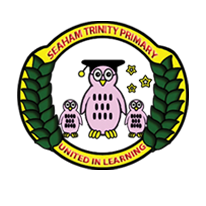Reading
We pride ourselves on our established reading programmes in school which are in place to develop comprehension skills; develop vocabulary; improve fluency and foster a love of reading for pleasure.
At Key Stage One we follow shared and guided reading to develop confidence in our young readers. When children are competent readers, they will have access to a wider range of texts and genres and once the children have achieved the ability to discuss texts at length, they move onto our Reciprocal Reading Programme; this generally takes place towards the end of Key Stage One / beginning of Key Stage Two.
Reciprocal reading involves a dialogue between adult and children for the purpose of jointly constructing the meaning of a text and is proven to enhance children’s overall comprehension and word knowledge. Sessions aim to make reading both fun and informative.
In addition to the guided programmes we have established, children also have daily access to Reading Pro, a structured reading system which accurately assesses student’s reading comprehension and promotes reading growth. Children read from a wide selection of texts at their Lexile level and access comprehension tests online which enables us to track understanding and performance.
We also encourage home reading; children have home reading books and the use of a record book which helps to open a dialogue between home and school.
Phonics
At Foundation and Key Stage One, we follow the Read Write Inc (RWI) Phonics Programme which aims to develop the children’s recognition of the 44 phonemes in the English Language (represented by the 26 letters of the alphabet) the building blocks to making them confident with reading and spelling. The teaching of reading begins by helping children tune into the sounds around them and develop awareness that letters represent sounds which go together to make words.
Phonics is delivered by trained staff daily, with children grouped appropriately to ensure maximum progress.
Once children are confident and have completed the Phonics Programme there is a natural transition to the Read Write Inc Spelling Programme which continues into Key Stage Two until children have completed units successfully and with confidence. RWI Spelling takes place most mornings in Years 3 and 4 with Years 5 and 6 accessing the programme two to three times each week.
At Key Stage Two, in addition to RWI Spelling, children also focus on the National Curriculum Word Lists for Years 3/4 and 5/6 to compliment their vocabulary.
Children are given spelling tests weekly and their progress is monitored closely.

